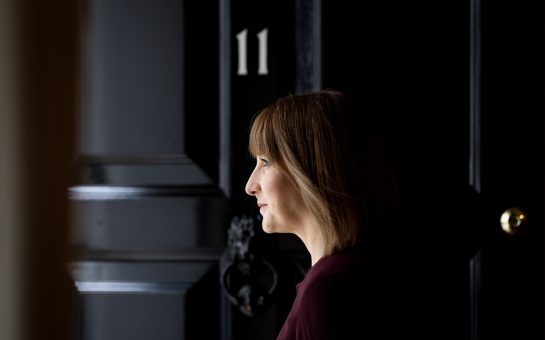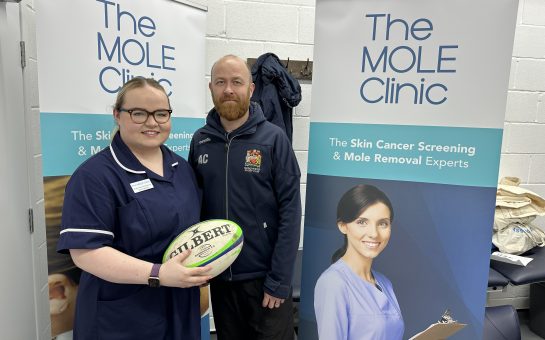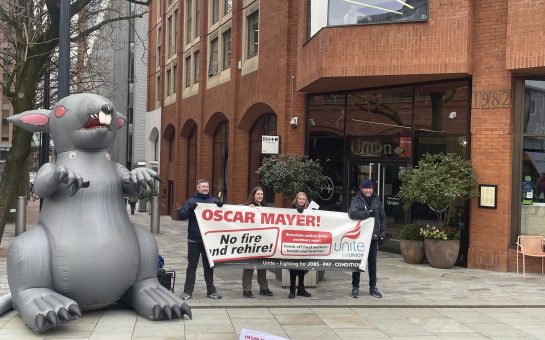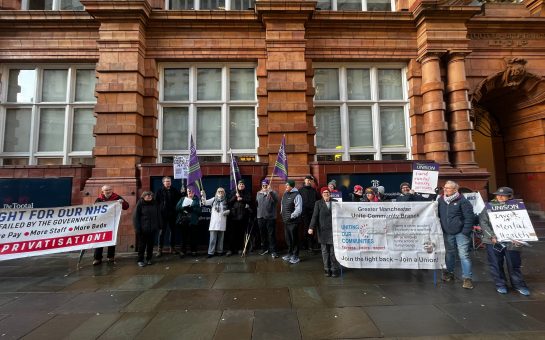Last Friday’s final consultation on whether Greater Manchester’s buses should be returned to public authority control was extremely convincing.
The hour-and-a-half long meeting attracted a comfortably large audience, facing a panel of Andrew Gwynne MP, Councillor David Mellor, and journalist Caroline Blase.
The Guardian’s Helen Pidd, a self-professed “proud Stockport resident,” chaired the event. She began the evening with a 20-minute video which explained the issues of the current system.
In 1986 Margaret Thatcher deregulated all buses outside of London. This means that power over how much to charge, where the routes run, when, and how often, was plucked out of public authorities’ hands and left entirely up to private companies’ discretion.
This has seen Stagecoach and First, Manchester’s dominant bus companies, turn public transport into a profit-making system, increasingly at the expense of people living here. They run the routes they want to, where the demand is high enough for the route to be profitable, as the film and then all three speakers explained.
This has seen eight million miles of routes slashed since 2010 and a 40% decline in bus use across Greater Manchester. Meanwhile, bus fares have increased by 55% in the last ten years.
In London, which avoided the 1986 deregulation ruling, passenger numbers have doubled during that time.
“We are paying more for a worse system,” said Mr Gwynne, MP for Denton and Reddish. “This is a scam that has got to end.”
The panel argued that re-regulation would set a precedent, aiming towards the London-style single-ticketing system. Mr Gwynne pointed out that under the current fragmented style of allocating public transport services, Metrolink and buses compete where they should be complementing each other.
After an initial £135 million to get underway, Transport for Greater Manchester predicts annual net financial gains in the region of £350 million.
On top of this, Mr Mellor stressed the environmental costs of the current system, where buses are old and polluting and cars are often the cheaper and more convenient option. Ms. Pidd floated the question as to whether the national government could make cars more expensive to drive.
“This is not about demonising people who do drive,” answered Ms. Blase. “It’s about providing an alternative so people don’t feel they need a car.”
Thanks to @helenpidd for chairing an excellent public meeting for @BetterBusesGM in Stockport tonight.
Bus companies are running buses for profit, not people.
Have your say so that we can get better buses for our area, using this simple guide at: https://t.co/wl8PwakieH pic.twitter.com/75VSwGOh93
— Andrew Gwynne (@GwynneMP) November 1, 2019
A quick google produces pages on Manchester’s air crisis. Every year 181 people die in Manchester alone because of toxic air, and an Institute for Public Policy research study showed that pollution-related health problems cost the region’s economy a staggering £1 billion a year.
Ms. Blase also spoke about the social implications of a bad bus network. Without a car herself, she is (proudly) bus reliant. When they come only once hourly, run a counter-intuitive route, or don’t run at all – this creates social issues that stretch beyond just being annoying.
“It is a form of social exclusion and does affect people’s sense of wellbeing,” she said.
Productivity also suffers: 37% of job seekers say that bus services are an obstacle to them reaching work.
Additionally, how much NHS money is wasted on missed appointments because of a bad bus network, Ms. Blase asked.
Amidst all the stats, Mr Mellor highlighted the importance of “demystifying what’s being proposed here.”
“We need to go out and tell people what’s going on,” he said.
Spread the word about this deregulation business, and what it could mean for Greater Manchester’s individuals and whole communities, was the message.
Pascale Robinson from Better Buses for Greater Manchester, also at the event, explained that to do this, take and fill out the consultation form and encourage friends and family to do the same.
It is an 11-page document the gives the public the chance to comment on the arguments for regulation, ultimately adding weight to the case facing Andy Burnham.
All very convincing. But it seems the general public are not necessarily the ones who need convincing – Local Government Polling shows 69% of people nationally are in favour of the move.
Ms Robinson expects kick-back from the private companies, possibly a legal challenge, which she fears will sway Mr Burnham’s decision.
“We need to let the private bus companies know that we are not going anywhere,” she said.
“Get [your opinion] down on the consultation and have your say, because this would be the biggest chance in a generation to get better buses to support our communities.”
Anyone, bus-user or not, can fill it in. The deadline is January 8 and Mr Burnham’s decision is expected in April.
The consultation form can be found here, or you can email [email protected]



